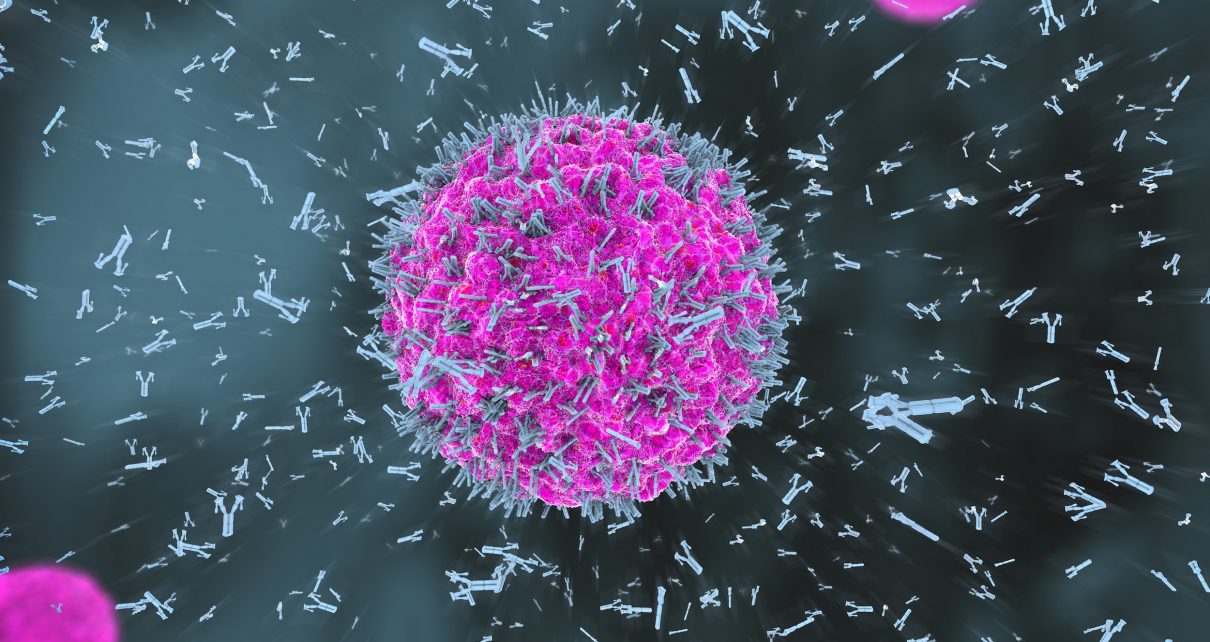COVID-19 has rendered conventional passports pointless for the foreseeable future. But many countries are exploring the idea of a new type of “immunity passport” to permit people with antibodies against the COVID-19 virus to escape lockdowns. The alluring premise is that these individuals are immune and thus could be permitted to work and travel, a step towards returning to a pre-pandemic society. This ostensibly scientific approach is actually a colossally unsound, and possibly dangerous, idea.
If, as touted, an antibody test will determine the fate of our $21 trillion economy, and also protect us from a deadly respiratory virus, then we should demand a high-quality test. Yet, dozens of tests with unknown accuracy have flooded the United States market, thanks to a move by the Food and Drug Administration that loosened restrictions in order to increase access to testing. It is not clear when, or if, we will know how well these antibody tests work, though the FDA announced in mid-April that researchers at the National Institutes of Health would begin evaluating the quality of these tests.
Accurate tests do, however, exist. The first of four antibody tests that was approved on an emergency basis by the FDA, one manufactured by Cellex, boasts a sensitivity of 94 percent (the proportion of people with the disease who will test positive) and a specificity of 96 percent (the proportion of people without the disease who will test negative). Those numbers might seem impressive, but, as former defense secretary Robert McNamara once said, in the fog of war, “belief and seeing are both often wrong.”
Sensitivity and specificity are not what matter if screening is to guide unfreezing the world’s economies. Instead, the $64 trillion question should be: What is the predictive value of a positive test? That is, if a person has a positive antibody test, what is the probability that the individual really had COVID-19? The answer, and thus the effectiveness of a COVID-19 passport system, hinges heavily on the prevalence of the disease in the population.
Over 860,000 Americans have been diagnosed with COVID-19, roughly 0.25 percent of the population. The true total is surely higher, possibly around 1 to 2 percent, because most infections are asymptomatic (50 percent in Iceland) or undetected (86 percent in China). Random population sampling has indicated various numbers for prevalence in different areas, including 0.5 percent in San Miguel County, Colorado, 0.8 percent in Iceland[OO1] , 1.8 percent in South Korea and 2.8 percent in Santa Clara County, Calif.
What would happen if we used the FDA-approved Cellex test to issue COVID-19 passports in a hypothetical society with 10,000 people where the prevalence is 1 percent? If all 100 people who had COVID-19 also had antibodies, passports would be correctly issued to 94 (94 percent of 100) of them who test positive. Of the 9,900 uninfected, 9,504 (96 percent of 9,900) would correctly test negative. However, the remaining 396 (4 percent of 9,900) would falsely test positive and get passports incorrectly. Thus, 396 out of the 490 (94 plus 396) passports issued (four out of every five) would be illegitimate!
Even if the prevalence were 2 percent, two out of three passports would be issued to people who didn’t have antibodies. This false positive problem is what bedevils mass population screening when the prevalence is low. What if there were a nearly perfect test with 99 percent sensitivity and specificity? Seems awesome, doesn’t it? If that test were used in a country with 1 percent prevalence, then the predictive value of a positive test would be only 50 percent—a coin toss! If the prevalence eventually became 70 percent, as German Chancellor Angela Merkel predicted, then 49 out of 50 people issued passports would truly have antibodies. But at that point, passport screening becomes moot as most people have had the disease.
Beyond the bad math, the entire premise of the COVID-19 passport conflates the presence of antibody with enduring protection against infection. However, for several infectious diseases, e.g., HIV/AIDS, the body produces antibodies that do not protect against the virus. Antibodies against the SARS coronavirus lasted only two years and sometimes worsened the disease. It is also unknown whether the tests detect antibodies against emerging mutant strains of the COVID-19 virus. Stunningly, at least one of the FDA-approved kits falsely detects antibodies to the multiple circulating non–COVID-19 coronaviruses that infect humans—another flaw that massively inflates the false positive problem. And like an ostrich burying its head in the sand, some of the FDA-approved kits and scores of unapproved yet marketed kits have not even determined whether they too suffer from this huge inaccuracy.
Further, the tests detect IgG and IgM antibodies in the blood but not IgA antibodies, which are more important in mucosal immunity, i.e., protecting the nose, throat and lung lining through which the COVID-19 virus invades. This is not trivial, as improved mucosal immunity is why the Sabin polio vaccine prevents transmission of poliovirus, whereas the Salk vaccine does not. Since available tests don’t detect IgA, a COVID-19 passport holder might still be a respiratory carrier. Indeed, a recent study in China showed that more than 10 percent of IgG-positive individuals still carried the COVID-19 virus.
It is folly to base freedom of movement on such fallible testing. Passport holders and society would have a false sense of security while non–passport holders would have their civil liberties and work opportunities unwarrantedly abridged. A passport policy would also endanger lives by undercutting good hygiene and healthy behavior; those desperate to return to work or re-integrate into society would risk exposure to the virus in attempt to develop antibodies.
We all want desperately to go back to normal. But just as there is no returning to September 10, 2001, we cannot simply wish away COVID-19 like a bad dream. COVID-19 testing can help us make better-informed medical and societal decisions, but only if we test in a way that makes sense. Testing those that are ill or at high exposure risk for active infection can help us contain, treat, and understand the medicine behind COVID-19. Random population testing coupled with contact tracing can help provide epidemiologic estimates of viral spread. Antibody testing in the current state of scientific knowledge simply does not. We cannot equate testing positive for antibodies with true immunity. To do so is medically wrong and also opens up a host of civil liberties issues. Work discrimination, travel discrimination and other sorts of false immunoprivilege are real risks to societal harmony.
COVID-19 has torn the fabric of society like nothing else in modern memory. Peoples and institutions are frenetically trying to mend it. Unfortunately, well-intentioned frenzy can cause poor decision-making with potentially disastrous consequences. Let’s redirect our efforts towards what works. We need to get masks, PPE, ventilators and robust physical distancing, active infection testing, and contact tracing for subsequent COVID-19 waves. We need to rapidly test all 6,000-plus drugs approved for human use to see which could be repurposed for COVID-19.
What we don’t need is a shortsighted passport policy that would be a fool’s errand and even promote viral spread. Science, medicine and public policy are moving at blinding speed. But let’s not drive blindly.




